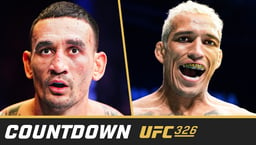
Issue 054
September 2009
Many fighters are unsure what supplements are best for them, or how to get the most out of the supplements they spend their hard-earned cash on.
It’s important to consider what a supplement is; this may sound obvious, but it is a supplement. Many people focus entirely on supplements and neglect food intake. Appropriate food intake is fundamental for success. Whole food has many other nutrients that aren’t present in supplements.
A dictionary definition of supplement is: ‘something added to make up for a deficiency; extend or strengthen the whole.’ The diet is the whole, supplements should strengthen the diet. Protein shakes can supplement a deficient diet, but your entire nutrition shouldn’t come from protein shakes.
You should consider what your goals are and areas that you struggle in nutritionally. A fighter needs to consider as priorities: fuel for training, recovery from intense sessions, immune function and hydration. These points should be addressed through the diet and complemented with appropriate supplements.
Fuel
Eating adequate calories throughout the day to fuel sessions is vital. Fighters often have multiple daily training sessions, all of which are hugely demanding. Regular, balanced meals throughout the day provide the body with fuel. The advantage of supplements is that they provide a convenient source of quality, controlled nutrition. At times such as mid-morning or mid-afternoon where whole food access may be limited, a supplement can provide the fuel that the body needs.
Recovery
The one time I would suggest supplementation over whole food is post-workout. The period after training is vital for helping the body to recover and adapt to the stimulus created from the session. Supplements containing dextrose and / or maltodextrin with whey protein are absorbed much faster than food, so the muscles get the nutrients they need as soon as possible.
Immune function
Intense training can suppress immune function. Providing the body with adequate micronutrients (vitamins and minerals) can help protect against infection. Eating a rainbow of fruit and vegetables, at least five portions a day, should be high on a fighter’s nutritional priority list. Supplementing with a high-quality multi-vitamin can provide an insurance policy against deficiency. Appropriate post-training recovery also helps immune function.
Hydration
Dehydration reduces strength, speed (therefore power), coordination and concentration, all of which are attributes that fighters need in abundance. Fighters should drink around two liters of water throughout the day. A hydration drink during training will help to refuel and rehydrate beyond and above what water can do. Bear in mind though, if a fighter drinks nothing during the day, a hydration drink will not put them in an instantaneous state of hydration.
ASK THE EXPERT Q&A
Email us at [email protected] with your questions.
Q. I’m going on a lads’ holiday at the end of the summer so I’m really looking to sort out my diet and step up my time at the gym to look good. To cut a long story short can you let me know what type of supplements I should be using to help me out?
A. Ah, aiming to look good for the ladies! That should provide training motivation! As you’re stepping-up your gym time, recovery from intense sessions is going to be key. This will help you with subsequent sessions, and help start the muscle growth process. Aim to consume around 40–50g carbohydrate and 20–30g of protein straight after training. Thermogenic supplements, such a Thermobol from Maximuscle, help to stimulate your metabolism and increase the amount of fat you use as a fuel. Taking one capsule pre-training should help to increase your training intensity, and also calories burnt.
Q. I recently watched online a ‘Behind the scenes’ training video with a top MMA fighter. He was telling the presenter he eats 2,500 calories per day! Can you clear up the whole calorie intake thing. I train most days and there’s no way I eat that much, but I’m still quite fat!
A. Calorie intake is relative to an individual, and it’s not quite as simple as saying “eat X amount of calories”. Activity level, training intensity / type, metabolism and food choices all contribute to how you look – it’s not just the calories that matter. If you’re eating very little, and you’ve still got fat to lose then perhaps you’re not eating enough? As stupid as that sounds, eating too little will slow your metabolism, reduce circulating hormone levels and make fat loss difficult. Think of it as the body hording the calories you do eat. Other points to consider are the types of foods you eat, when you eat them and how hard you’re training.
Daily Diet Plan
Putting all that together, a fighter’s daily food intake with supplements could look a little like this:
07:00 100g Oats with milk, Protrient (multi-vitamin).
10:00 Shake (provides carbohydrate, protein, as well as performance nutrients), one pear.
13:00 Two slices whole wheat bread, 100g turkey, small avocado, lettuce, tomato, cranberry sauce and an apple.
16:00 Handful of mixed nuts and five rice cakes with quark cheese.
18:00 Banana (pre-training).
19:00–20:00 Pour one packet of XTKO into a cup of ice and water
20:00 Recovery drink, banana (post-training).
21:30 Chicken stir fry (100g chicken breast, noodles, and stir fry vegetables).
23:00 150g Cottage Cheese
If you’re new to supplements, keep it simple to start with. Focus on your diet, and use supplements where you think there are gaps. After all, you want to get the maximum benefit from your hard-earned cash.










